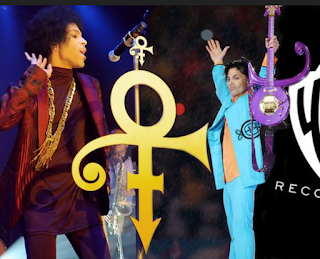By Hal Brown, MSW, Retired clinical social worker psychotherapist (about me)
There are many articles with good defitions of self-awareness. This one should suffice to describe what I mean by this term for this blog:
There Are Two Types of Self-Awareness
For the last 50 years, researchers have used varying definitions of self-awareness. For example, some see it as the ability to monitor our inner world, whereas others label it as a temporary state of self-consciousness. Still others describe it as the difference between how we see ourselves and how others see us.
So before we could focus on how to improve self-awareness, we needed to synthesize these findings and create an overarching definition.
Across the studies we examined, two broad categories of self-awareness kept emerging. The first, which we dubbed internal self-awareness, represents how clearly we see our own values, passions, aspirations, fit with our environment, reactions (including thoughts, feelings, behaviors, strengths, and weaknesses), and impact on others. We’ve found that internal self-awareness is associated with higher job and relationship satisfaction, personal and social control, and happiness; it is negatively related to anxiety, stress, and depression.
The second category, external self-awareness, means understanding how other people view us, in terms of those same factors listed above. Our research shows that people who know how others see them are more skilled at showing empathy and taking others’ perspectives. For leaders who see themselves as their employees do, their employees tend to have a better relationship with them, feel more satisfied with them, and see them as more effective in general. From The Harvard Business Review
I got the idea for this blog when I was watching "Morning Joe" where the panel was interviewing Walter Isaacson, author of a soon to be released book about Elon Musk. The discussion centered on his personality and how his having a self-described form of Aspergers may effect his behavior. It's been repeorted that he's said some outraegous things to people and shortly afterwards claimed convincingly that he never said what someone heard. As you see below, Isaacson said there seemed to "be two, three, four different types of Elon" and he went on to say it was as if he had muliple personalites.
You can watch the 13 miute video here.This really has little to do with what I want to advocate for here. Musk is just an example of someone who, if they had self-awareness and cared about being a force for good, would make a major difference in other people's lives. My impression is that Musk lacks self-awareness. He also may be a malignant narcissist (see my blog What to Make of Musk from Sept. 9th)
It is fair to compare him to Donald Trump because Trump probably has some self-awareness but just doesn't care, in fact he may be very much aware of how he hurts others and relishes doing it.
To the extent that Musk is like Trump in being a malignant narcissist (as I wrote the other day) he may not care either and may enjoy hurting others.
The self-awareness I want to focus on may be best understood by looking closely at people who have little or just about no self-awareness.
Of all the traits such as empathy and caring for others which we would hope are possessed by people whether in power to influence very large numbers, or who can by virtue of their positions make like good or miserable for those in their lives whether in the companies where the exert control over subordinates, or in their families, over all these characteristics is having self-awareness.
If someone wants to be what would generally considered a "good person" they must be able to take a long, hard look at who they are and how they're behaviors, their words an deeds, effects other people.
Again, one has to want to be a good person. If someone, for whatever reasons, doesn't care who they hurt in pursuit of their goals no degree of self-awareness will matter.
For those who do care, if you don't already have a depth of self-awareness, there is hope. The first step can be for everyone - I mean everyone - to decide to engage in a self-assessment beginning by asking people in their lives how their words and action effect them.
This means both family members, friends, and people who you work with. Those who are in postions of authority over people, and may have the power to deny them promotions or even fire them, could distribute a questionnaire that would be responded to anonymously. It could be a simple true/false list a rating scale for questions. For example:
25 Employee Satisfaction Survey Questions You Need to Ask
If you find out that people view you as judgmental, arrogant, distant, unapproachable, quick to express disapproval, or get anxious when they are dealing with you, or have any other characteristics you want to try to change psychotherapy is a good option.
If you even want to know how people in your life view you you are probably halfway there.
Addendum:
Thanks to those of you who read, or at least scrolled down, this far. For you, here an explanation of the photo I just took to use at the top of the story. I looked at various graphics under an image search for self-disclosure and not only were most copyrighted, but all were boring. Lots of them show people looking in a mirror.
I decided I take a photo of what's on my table with a few items added and rearranged (the yellow coffee cup was already there, I added the black one). What does it say about me? I'll leave that up to you to speculate about.































